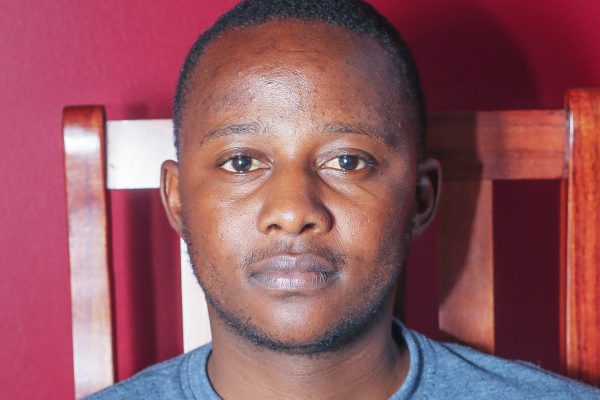
A full week is left before the start of the Conference of Parties (COP) 23 to be held in Bonn Germany from November 6 to 17.
By Kennedy Nyavaya
The 23rd session United Nations (UN) Climate Change Conference, COP23, to which Zimbabwe is a signatory, is according to their website “strategically organised to increase climate action and more sustainable development at all levels of society”.
With 197 parties to the convention, Zimbabwe is part of the 169 that have ratified in adherence to the dictates of the Paris Climate Agreement, which is the closest the world has gotten into agreeing over goals to fight climate change since a united global attempt to fight the scourge.
The ultimate global goal is to limit errant climate change impacts between 1,5°C and 2°C average temperature rise by 2100 and major focus is on toxic greenhouse gas emissions, which are largely coming from the developed world.
Africa in a bid to catch up with this development, is also threatening to increase the hazardous activities and that would be a bone of contention in Bonn.
“We must get on track as fast as possible to meet the agreement’s goal of limiting the global average temperature rise to well below 2C degrees and as close as possible to 1,5C,” emphasised head of UN Climate Change, Patricia Espinosa in a recent welcome statement for Nicaragua’s accession agreement.
“It is most important now to ensure governments, business and multilateral organisations, including the UN, coordinate their response closely to work further, faster and together for more ambitious climate action.”
- Chamisa under fire over US$120K donation
- Mavhunga puts DeMbare into Chibuku quarterfinals
- Pension funds bet on Cabora Bassa oilfields
- Councils defy govt fire tender directive
Keep Reading
Analysts maintain there is need to strike a balance between Africa’s development and reduction in emissions as it could disadvantage African nations with abundant resources, especially in the energy production sector.
But, at whatever cost, the discordant fact is the apparent fact that the world hardly has a choice in this equation other than to quickly engineer ways of mitigation and adaptation to the enigma.
For Africa and particularly Zimbabwe, which has youths constituting much of its population, the burden lies on these young shoulders to strike a balance between development and monitoring the rampant climate change.
Agribusiness consultant and development practitioner Ngonidzashe Kativu said the contributions coming from local delegates should not be from a point of inferiority, but must attempt to point out real African problems.
“Too often the decisions made by superpowers, as I often call them, do not speak to both the developmental challenges and dynamics that you find bedevilling developing countries such as Zimbabwe,” he said.
“To combat climate change at the local level, delegates ought to go to Bonn and speak the realities of climate change and have their realistic local or localised solutions heard, and the bigger powers’ interests have to fit into the localised strategies and not the other way around.”
Kativu called for an amplification of youths’ voices, citing that with around 70% of Africa’s economy being agrarian, and 60% of the population constituted by youths, there was urgent need for a youth-specific strategy to combating climate change within the agricultural economy among other economic sectors.
Locally, he suggested discussions and financial support for ground-breaking mechanisms initiated by citizens.
“To get the local dialogue going again, I strongly believe that it’s high time we considered incentivising innovations that seek to combat climate change,” he said.
Part of the local delegation is Action 24 representative Archiford Chemhere, who told The Standard Style that the youths’ main thrust is to lobby for favourable modifications to the current deal.
“The focus of COP 23 is entirely on the rule book so in that regard, youth can play an advocate role to ensure that there is transparency in laws and instruments to govern parties,” he said.
Chemhere insists the advocacy should also stretch towards finalisation of “grey areas” like red tapes contained in the Paris Agreement.
Actions 24’s mandate is to engage and influence young people in “programmes and initiatives with the intention to create an interface between marginalised and non-marginalised communities in the face of the changing climate.”
With other youthful delegates, including Chemhere part of the group set to represent Zimbabwe at the international forum, the largely young nation can only pin its hopes on this lot.
However, going into the talks, the recent pull-out and subsequent absence of the United States at COP has been widely viewed as a major setback to the grand environmentally-friendly plan.
Chemhere said this will not stall progress because the world is left with no choice, but to coalesce in this struggle.
“It [COP] remains effective because it is all about the globe coming together for a common concern and that the US has pulled out will not do any effect to the big problem that needs to be addressed, which is why countries have remained united in these discussions,” he said.
“Climate change has become a survival issue, which has its relevance in the global agenda and discussions, hence America is only a country and not the entire globe.”
Temperatures continue to soar with uncertainty roving around weather patterns as they are constantly and drastically changing.
Prospects of a bearable future solely depend on combined action despite in difference posing a threat to a phenomenon which has become the world’s biggest threat to human existence in modern times.











